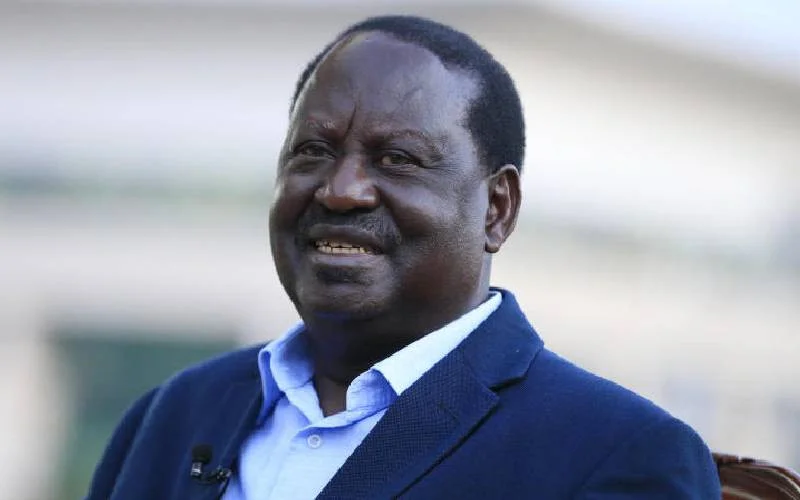Raila Odinga, a towering figure in Kenyan politics, passed away at 80 on Wednesday due to a sudden cardiac arrest while undergoing treatment at an Ayurvedic wellness center in Kochi, India.
The former prime minister collapsed during a morning walk on the facility’s grounds and was rushed to Devamatha Hospital in Koothattukulam, where he was pronounced dead at approximately 9:52 a.m. Indian time. His death marks the end of a remarkable career that shaped Kenya’s political landscape for decades.
A Storied Political Journey
A member of the Luo community, Odinga entered Kenya’s parliament in 1992 and became a prominent opposition leader.
He served as prime minister from 2008 to 2013, a role that capped years of advocating for democratic reforms. Odinga ran for president five times, in 1997, 2007, 2013, 2017, and 2022, but never secured the office, often claiming electoral fraud in the latter four races.
The 2007 election, in particular, triggered ethnic violence that claimed over 1,100 lives, exposing deep divisions in Kenyan society.
Despite these challenges, Odinga’s commitment to unity was evident in historic reconciliations. In 2018, he joined hands with then-President Uhuru Kenyatta, ending years of rivalry.
He repeated this effort in 2023 with President William Ruto, fostering stability in a nation long plagued by political tensions.
His platform focused on eradicating corruption, introducing universal healthcare, providing stipends for the unemployed, and ensuring free education, policies aimed at uplifting marginalized communities, especially in western Kenya, where his support base felt neglected by successive governments.
A Legacy of Resilience
As the son of Kenya’s first vice president, Odinga was born into a political dynasty that, alongside the Kenyatta family, has dominated the nation since its 1963 independence from Britain.
A former political prisoner, he endured personal sacrifices, including detention under authoritarian regimes, to champion democracy.
He repeatedly called out electoral injustices, with the 2007 and 2017 polls sparking deadly unrest that underscored the stakes of his campaigns.
Yet, his ability to bridge divides and advocate for the disenfranchised cemented his status as a national icon.
Beyond politics, Odinga built a business empire with interests in the energy sector, though his wealth paled compared to some peers.
His entrepreneurial spirit complemented his public service, blending pragmatism with a vision for equitable growth.
His influence extended to western Kenya, where he pushed for development to counter regional disparities.
Tributes and Reflections
Odinga’s passing has prompted an outpouring of tributes, with leaders and citizens reflecting on his role in shaping modern Kenya.
His reconciliations with Kenyatta and Ruto demonstrated a rare willingness to prioritize national unity over personal ambition.
As Kenya grapples with ongoing challenges like corruption and economic inequality, Odinga’s advocacy for inclusive policies offers a roadmap for progress.
His death comes at a pivotal moment, with the nation mourning a leader who embodied resilience and hope.
Odinga’s legacy rooted in his fight for justice, democratic ideals, and social equity, will continue to inspire Kenya’s next generation as they navigate the complexities of nation-building.
Nigeria Fiscal Reforms End Agency Deductions for Transparency























